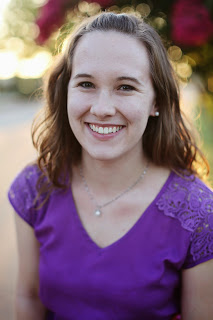A Schedule That Motivates You
 Today, Rebecca Pollet shares her academic schedule with us. Rebecca is a 4th year PhD candidate in Biochemistry at the University of North Carolina at Chapel Hill. Her research interests include crystallography and how the human gut microbiome affects our health. She is also interested in undergraduate mentorship and teaching. You can find her tweeting at @rmpollet.
Today, Rebecca Pollet shares her academic schedule with us. Rebecca is a 4th year PhD candidate in Biochemistry at the University of North Carolina at Chapel Hill. Her research interests include crystallography and how the human gut microbiome affects our health. She is also interested in undergraduate mentorship and teaching. You can find her tweeting at @rmpollet.
In my fourth year of graduate school in biomedical research, my daily focus is completing enough experiments in the lab to write peer reviewed papers and my thesis. This means that each day the majority of my time is spent researching, planning, and executing these experiments in order to complete “my story.” However, in line with my interest in undergraduate mentoring and teaching, a good bit of my time is also spent teaching and explaining those experiments and the scientific thought process to undergraduate students working with me.
Early in my graduate career I realized that working with undergraduate students made me more interested in completing my research. Some days I was motivated to go into the lab more for the teaching opportunity with undergraduate students than for the desire to get some basic experiments done. From this I learned a lesson that I think can be helpful to anyone trying to organize their schedule- find what you are interested in, what motivates you and work that into your schedule. I think in any occupation or training, but especially in graduate school, you will be required to do things you don’t particularly enjoy- classes for some, writing for others- but if you have something you look forward to, it will be easier to get through. I am currently working with two undergraduate students and a post-baccalaureate student. This means that I am constantly motivated to stay on top of the techniques we are doing in order to explain it to them. I also benefit from their questions that frequently lead to better controls or new, exciting experiments.
It is also important that I keep time to myself to organize my thoughts, run my own experiments, and read new papers in my field. Luckily working with undergraduate students allows for an easy allocation of time as undergraduates often cluster their classes in the morning leaving their afternoons open to work in lab and my mornings free to work on my own. This has worked well for me as I find that I am able to focus and get difficult work done best in the morning so I can focus on reading a paper or planning a difficult set of experiments each morning and then be more active in the afternoon, working with others, at a time I would otherwise be losing focus.
All this is not to say that my time is perfectly delineated between my own experiments and teaching undergraduate students. I also spend a bit of time each day checking email and twitter. Throughout the day I’ll note emails that need a reply, links or papers I need to spend a bit of time reading, and twitter conversations I’d like to follow. I tend to return to these at the end of the day after the undergraduate students leave for day and my experiments are wrapping up. This allows me to give each of these items more focus than if I was trying to squeeze them in between experiments and helps me wind down after being up and about all day. There is also a fair bit of time spent catching up with other graduate students and my mentor that provide invaluable insights as well as generally good conversation.
After wrapping up experiments, emails, and cleaning up a bit I head home for dinner with my husband. My husband is not in science so home is an escape from the stresses of failed experiments but he is learning enough about my projects to understand what I have been working on each day and celebrate my achievements. In addition to my husband, it is very important to me to have friends and activities outside the university and my research so a few nights each month and some time on weekends are set aside for planning and attending events, spending time with friends, and facilitating communication for the various organizational boards I serve on. Rather than having a hobby like music or crafts, planning and attending these events allows me time away from science that allows me to focus better when I return to the lab. I’ve also met plenty of friends who support me in my research through these organizations!
For nights without a social engagement I spend time after dinner reading papers, writing, and catching up on email while watching TV with my husband. I also reserve some time each weekend to review my work from the previous week and plan for the upcoming week. I find that spending a little time in the lab on the weekend helps me focus and find gaps in my experimental design without the distraction of the commotion that happens in the lab during the week. For me this organization as well as making sure I always have something to look forward to helps me have an enjoyable and productive schedule!
